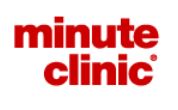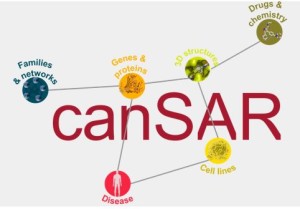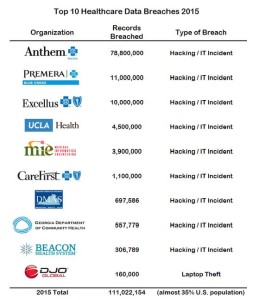- HHS And CVS Health Partner To Promote Consumer-Centered Preventive Services (healthaffairs.org)
The Department of Health and Human Services’ Office of Disease Prevention and Health Promotion and CVS Health recently formed a public-private partnership. This partnership aims to increase awareness of the availability of convenient, consumer-centered, recommended preventive services using healthfinder.gov. Healthfinder.gov is a source of easy-to-use prevention and wellness information, designed using health literacy and usability principles...CVS Health, recognizing the important role of informing and engaging patients about preventive care...integrated the myhealthfinder API into the MinuteClinic website in a pilot project conducted jointly with the healthfinder.gov team at the ODPHP...we expect individuals to become more informed and active consumers of clinical preventive services...To extend the reach of federal programs that improve health literacy, and encourage prevention and healthy behaviors...the HHS and CVS Health collaboration could be a model for other retail clinics…Because of retail pharmacies’ consumer and convenience focus, and their important role in connecting patients to and sustaining their relationships with primary physicians, retail pharmacies add valuable perspective and insight to the assessment of preventive care.
- Online Tool Compares Healthcare Stats Across Nevada (kunr.org)Nevada Instant Atlas, Nevada's County-Level Health Database (medicine.nevada.edu)
A new online tool is offering healthcare data that's broken down for each Nevada county. Reno Public Radio's Michelle Billman reports the database provides snapshots on how different counties compare on everything from their healthcare workforce to how many of their residents have health insurance…The project is called the Nevada Instant Atlas and it looks at healthcare indicators, including population demographics like income. It also profiles the overall health of people in a given area, along with their access, or lack of access, to medical specialists.
- Cancer database goes 3D to help drug design (upi.com)
The new imaging adds information on 3 million cavities on the surfaces of nearly 110,000 human molecules to the canSAR database...A large database used for cancer drug development has been improved to include three-dimensional structures...which scientists say could improve approaches to treating cancer...The...database...is used by more than 140,000 researchers around the world to research the effects of more than a million drugs on human proteins....Scientists need to find all the information there is about a faulty gene or protein to understand whether a new drug might work...These data are vast and scattered, but the canSAR database brings them together and adds value by identifying hidden links and presenting the key information easily...Finding new treatments for cancer can be a long and expensive process, so anything that cuts times and costs will help to bring the next generation of therapies to patients even sooner...
- Your health records are supposed to be private. They aren’t. (washingtonpost.com)
The federal law that protects health information is violated often and easily, and it's hardly ever enforced...After spending the past year reporting on loopholes and lax enforcement of the Health Insurance Portability and Accountability Act, the federal patient-privacy law known as HIPAA, I’ve come to realize that it’s not just celebrity patients who are at risk. We all are...I’ve talked to hundreds of people who say their medical records were hacked, snooped in, shared or stolen...In each story, a common theme emerged: HIPAA wasn’t working the way we expect. And the agency charged with enforcing it, the HHS office for civil rights, wasn’t taking aggressive action against those who violated the law...We all know HIPAA... It’s what requires us to stand behind a line, away from other customers, at the pharmacy counter or when checking in at the doctor’s office...It is used to scare health-care workers, telling them that if they improperly disclose others’ information, they could pay a steep fine or even go to jail...But in reality, it is a toothless tiger...And even though the civil rights office can impose large fines, it rarely does: It received nearly 18,000 complaints in 2014 but took only six formal actions that year. A recent report from the HHS inspector general said the office wasn’t keeping track of repeat offenders, much less doing anything about them...Making matters worse, HIPAA does not allow patients to sue health providers for damages if they violate the law. So if the federal government doesn’t enforce the law, there are often no consequences for breaking it...Moreover, the government needs to write regulations to implement provisions of a 2009 law that would give patients whose privacy has been violated a share of the money HHS recovers. Finally, the government has yet to submit to Congress a report due in 2010 with recommendations for how to deal with the privacy of health information not covered by HIPAA.
- IBM’s Watson scores deals in fitness, medical and robotics (news.investors.com)
IBM's cognitive computing system, Watson, has graduated from winning "Jeopardy" to predicting hypoglycemic events for diabetes patients and providing the brains for a customer service robot…IBM CEO Ginni Rometty discussed three partnerships involving IBM's Watson during her keynote speech at CES 2016 (Consumer Electronics Show ) on Wednesday in Las Vegas…Rometty talked about how Medtronic, Under Armour and SoftBank Robotics are using Watson's big data analytics capabilities in vastly different ways.
- Medtronic…is using Watson technology for diabetes management. In a new app rolling out this summer, medical technology firm Medtronic will track a diabetes patient's blood-sugar levels and predict life-threatening hypoglycemic events up to three hours in advance of symptoms.
- Under Armour…hooked up to IBM's Watson because he wanted his customers to get more meaningful data-backed health and fitness insights…The company's UA Record app will provide athletes with timely, evidence-based coaching around their sleep, fitness, activity and nutrition, including outcomes achieved based on others "like you."
- Watson also is providing artificial intelligence for a social humanoid robot called Pepper from SoftBank Robotics. Pepper currently is being used as a customer service robot in a limited number of Mizuho Financial Group's bank branches and Nestle coffee shops in Japan.
- Pathway Genomics unveiled a test version of the Pathway Genomics OME app, powered by Watson. The app merges cognitive computing and deep learning with precision medicine and genetics to enable Pathway Genomics to provide consumers with personalized wellness information...
- Promise Of High Prices Now Driving Biopharma R&D Investments (forbes.com)
Once again, the biopharmaceutical industry had another banner year in 2015...in comparing the approvals of 1996 to 2015, a lot has changed over the years...the vast majority of drugs approved in 1996 were small molecule drugs...The drug approvals for 1996 are a reflection of the corporate strategy and the research philosophy embraced by Big Pharma at the time: find drugs that would be utilized by physicians to treat millions of patients suffering from common ailments...The “blockbuster” business model back then focused on having moderately priced drugs broadly prescribed...Companies have not totally abandoned this approach. Last year saw the approval of drugs expected to be billion dollar blockbusters by virtue of treating big populations of patients...What is stunning, however, is to see the number of drugs approved for small or “niche” populations, where high revenues are expected to be generated not by patient numbers but by price. Nowhere is this more evident than in the 14 new cancer drugs...I suspect that, for those who suffer from rare diseases or from certain forms of cancer, this shift in biopharma’s R&D priorities has been welcomed. As shown by the 2015 drug approvals, the promise of favorable pricing did stimulate innovation and improved the health of many. It will be interesting to see if political pressures, particularly in an election year in the U.S., impact this going forward.
- Drug approvals at 19-year high belie industry challenges (reuters.com)
2015 was a good year for innovation in medicine with the Food and Drug Administration approving 45 novel drugs, four more than in 2014 and the most since the all-time record of 53 set in 1996...the European Medicines Agency recommended 93 new products, including generics, up from 82 in 2014...the prospect for further progress in 2016, the pharmaceuticals industry faces challenges, with increased political focus on drug pricing having punctured both biotech and specialty pharma valuations in recent months...The rapid pace of new approvals reflects accelerated review times by regulators, who want to get life-saving treatments to patients, especially in cancer, as well as an improved scientific understanding of diseases...Full drug pipelines at many companies suggest the strong rate of new drug launches is likely to continue for a while yet, with IMS Health forecasting a total of 225 new drug approvals between 2016 and 2020.
- Docket Alarm Launches Suite of Tools for Orange Book Litigators (prweb.com)Orange Book (fda.gov)
Docket Alarm’s new suite of tools has components that help give Orange Book litigators a competitive edge…the first legal research platform to provide Orange Book litigators a suite of tools for their practice. The features include the ability to track changes to the Orange Book and related litigation, search correspondence between drug companies and the FDA, and analytics on Orange Book cases in the Patent Trial and Appeal Board…The "Orange Book,"…is the authoritative resource on FDA approved drugs for patent litigators. When a drug company wins FDA approval for a new drug, they submit an Orange Book listing detailing applicable patents covering the new drug and the drug’s labeling. Generic drug manufacturers engage in patent litigation with the branded company over whether the patents listed in the Orange Book are valid and properly cover the corresponding drug.
- Poor sales prompt Sanofi to pull plug on Mannkind inhaled insulin (reuters.com)
Sanofi is to stop selling an inhalable insulin developed by Mannkind, following disappointing sales of the product since its launch in February 2015...The decision to terminate the collaboration marks a blow for the idea of delivering insulin through an inhaler, rather than by injection...Rights to Afrezza will revert to Mannkind from Sanofi...Mannkind said it was reviewing strategic options for the product, although analysts questioned if the drug had any future...We can't imagine that another legitimate diabetes company would show serious interest in this asset...With little hope for resuscitating Afrezza and a dismal balance sheet (net debt), we see Mannkind in an increasingly precarious position...
- Data Breaches In Healthcare Totaled Over 112 Million Records In 2015 (forbes.com)Top Pharmacy Chains Revealed as Repeat HIPAA Violators (pharmacytimes.com)
Healthcare’s “wall-of-shame” for 2015 officially ends tonight at midnight. It’s not really a “wall,” it’s just a website, but it’s the online mechanism for the Office of Civil Rights under Health and Human Services to publish data breaches as reported to them and required by HIPAA. The numbers this year are just staggering...According to OCR, there were 253 healthcare breaches that affected 500 individuals or more with a combined loss of over 112 million records...The Top 10 data breaches alone accounted for just over 111 million records that were lost, stolen or inappropriately disclosed...A recent data breach study estimates that breaches cost the healthcare industry about $5.6 billion annually. As healthcare moves toward connected care, the amount of data exchanged between organizations will only grow. So what does this mean? It means that in 2016, we’re going to see a huge movement towards encryption in hospitals and other healthcare facilities in order to protect EHRs and other vulnerable PHI...Healthcare IT security will continue to fall further and further behind the rest of the industry verticals despite the increase in spending on technology and human resources. The industry is focusing on functionality for patient care and security is an afterthought. Many organizations are also overly dependent on antiquated hardware and software...I wish we could look back on 2015 as the year that healthcare took data security and patient privacy more seriously...In a data-driven world, medical information is just too lucrative and too easy to steal at scale. As long as that’s the case...we should reasonably expect more of the same for 2016.







